Native Nations Institute Supports Tribal Leadership at 2025 Emerging Leaders Seminar
The Institute’s Tribal and Direct Services Team welcomed more than two dozen new, veteran, and aspiring Tribal leaders to their annual educational seminar.
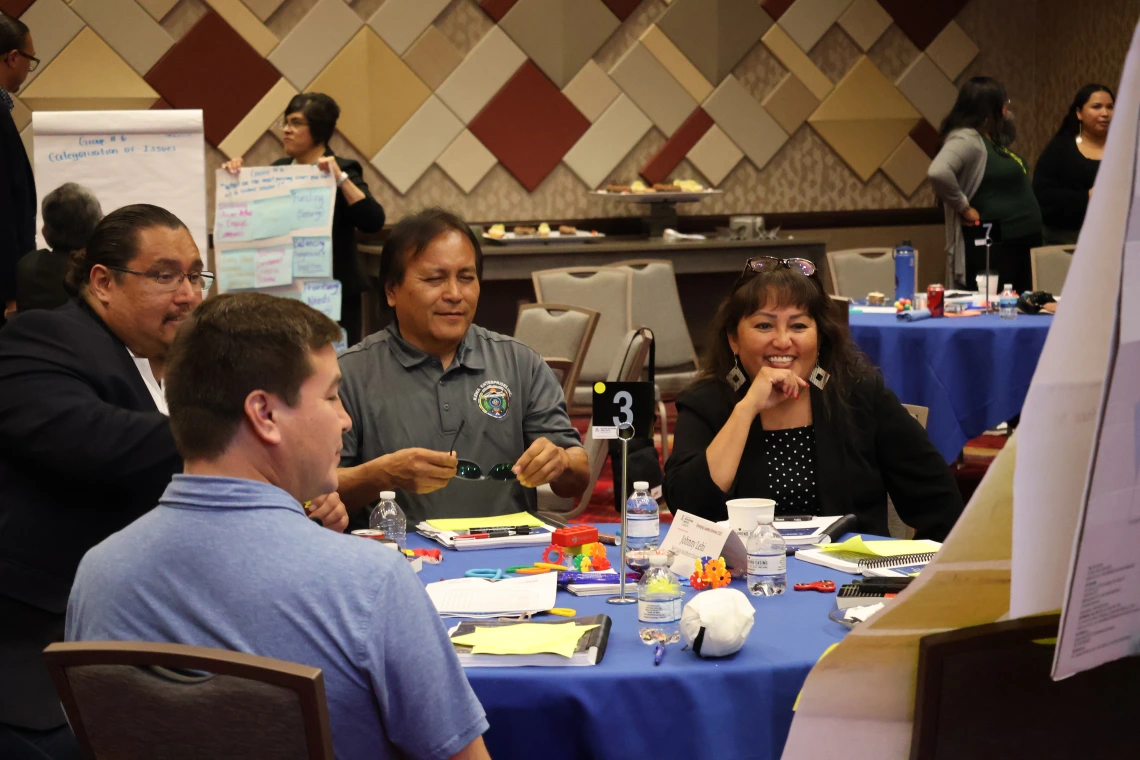
Laughter and conversations filled the conference room as Native leaders shared unique stories from their experience working in and with Tribal governments.
One participant noted the struggle of integrating traditional Tribal law in the prevailing modern Western system. Another offered a friendly challenge to U of A law professor and director of the Indigenous Peoples Law and Policy Program Keith Richotte, Jr. (Turtle Mountain Band of Chippewa Indians) as he explained his understanding of the legal definition for ‘conquered’, prompting a rich exchange of perspectives.
The result of these dialogues was an atmosphere of comradery and mutual understanding – a safe place to discuss challenges and ideas away from the prying eyes of competitive colleagues and critical voters.
Paving the Way for Native Leaders with Proven Knowledge
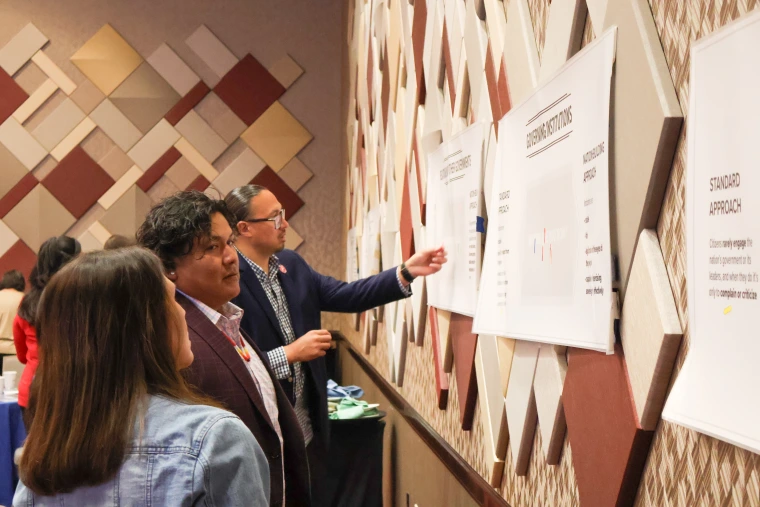
The two-day Emerging Leaders Seminar kicked off on July 16th, 2025 as the Honorable Regis Pecos, former governor of the Pueblo de Cochiti, offered a blessing to ground all in attendance and set the stage for his opening day presentation.
Pecos followed his prayer with a talk on the importance of living your core values to ensure that the decisions one makes as a leader are aligned with community beliefs and reflect Indigenous ways of governing. He encouraged Tribal leaders to listen to their elders, “treating language and culture [in a way that is] equally as valuable as Western education.”
27 Tribal officials representing 18 U.S.-based Native nations attended the seminar at Desert Diamond Casino on the lands of the Tohono O’odham Nation near Tucson, Arizona.
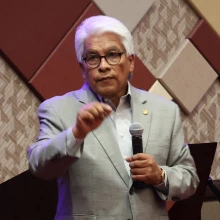
Regis Pecos (Pueblo de Cochiti)
Content covered at the seminar included a range of critical and field-tested information rooted in Native Nation Building principles which were presented by Native Nations Institute (NNI) staff and distinguished guest speakers.
This year’s topics included a primer on Indian federal law, intergovernmental relations, creating sustainable Indigenous economies, and fiduciary duties of public officials. Speakers at this year’s event included:
Janet Alkire, Chairwoman of the Standing Rock Sioux Tribe
Kevin Fortuin, Tribal & Direct Services (TDS) Outreach Specialist, NNI
Dr. Miriam Jorgensen, Senior Researcher at NNI/Udall Center; Research Director of the Harvard Project on Indigenous Governance and Development
Donald “Del” Laverdure (Crow), Former Acting Assistant Secretary for Indian Affairs at the U.S. Department of the Interior
Regis Pecos, Former Governor of the Pueblo de Cochiti
Dr. Keith Richotte Jr., Associate Appellate Justice, Turtle Mountain Band of Chippewa Indians; Director of the University of Arizona Indigenous Peoples Law and Policy Program
Wavalene Saunders, Legislative Chairwoman of the Tohono O’odham Nation
Joan Timeche (Hopi), Executive Director of NNI
Naomi Tom (Tohono O’odham), TDS Manager, NNI
Corrine G. Wilson (Ft. McDermitt Paiute-Shoshone Tribe), CPA & Tribal Finance Consultant
Speakers provide valuable insights gained through lived experiences, with this year’s event introducing a new addition to the curriculum in the “Intergovernmental Relations” content presented by Del Laverdure.
The Power of Community Building
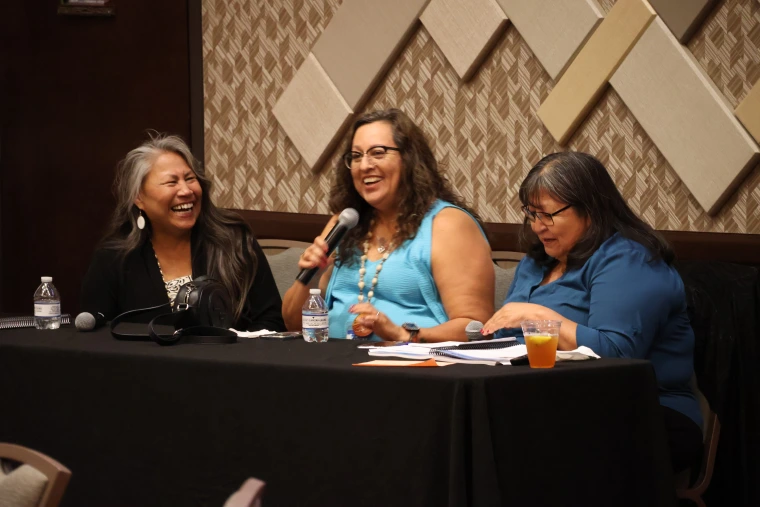
In his remarks, Laverdure pointed out that Native nations don’t exist in a silo, meaning that effective Indigenous governance is in part a matter of nurturing partnerships with other governments. “You’re going to run into (issues with) the cities, counties, towns, and even unincorporated areas,” says Laverdure. “Those relationships must be built; trust has to be developed. Once [Tribal leaders] can do that, they can tackle common problems.”
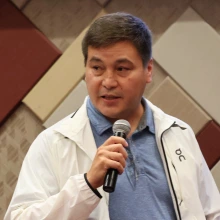
Del Laverdure (Crow)
NNI Executive Director Joan Timeche raised a similar call for mutual respect and collaboration among elected officials and the citizens they serve. “It’s crucial for Tribal leaders to not just understand how to communicate within their Tribe,” Timeche says, “but also with the many stakeholders they’ll be in contact with outside of their government as well…Long-term planning helps them accommodate for these variables.”
As Tribal leaders frequently discover in the shared space of NNI’s professional seminars, the challenges faced by Native nations are often similar. Bringing leaders from many communities together facilitates the development of coalitions and networks that create shared pathways to success and a basis for mutual understanding and partnership.
Intergenerational Impact
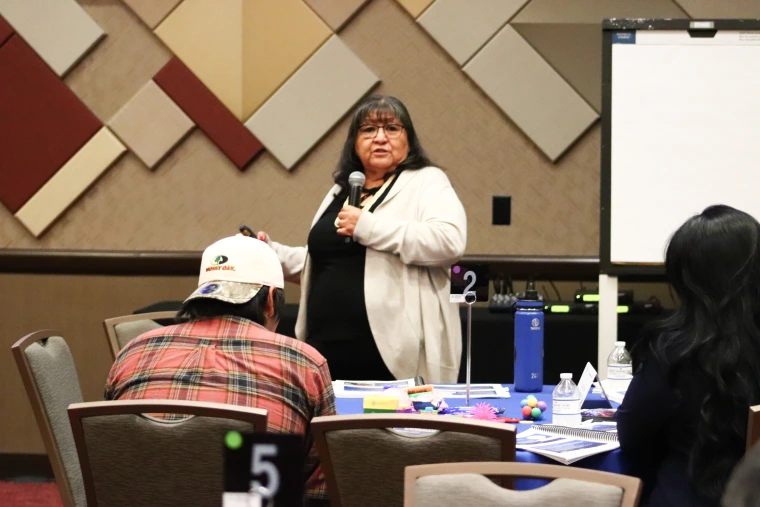
Aware of the lack of resources tailored specifically to Tribal leaders, Timeche and the TDS team held their first Emerging Leaders seminar in 2012. Since then, NNI has held five additional open registration Emerging Leaders events including the most recent, as well as a handful of one-off events, such as the one developed in 2023 at the request of Evergreen State College for Tribal leaders in the Pacific Northwest.
Having announced her impending retirement earlier this year, the 2025 Emerging Leaders Seminar will be the last such event run with Timeche at the helm. While this program is certain to continue under new leadership at NNI, it’s hard to understate the impact that Timeche has had on this space in her more than two decades of service to NNI.
As a regular on the NNI seminar circuit, the Honorable Regis Pecos can attest to Timeche’s ability to distill vital information and speak to the multitude of perspectives demanded by a room full of diverse Tribal leaders.
“None of this is taught anywhere within the public education system, nor is it taught anywhere in higher education’s institutional framework,” Pecos noted. “Joan’s gift in her role in this program, which hundreds and thousands have benefited from, is this real uniqueness of the depth of her understanding of the challenges facing Indigenous Peoples.”
In the years to come, NNI’s Emerging Leaders seminars will no doubt continue to provide the necessary foundation for Tribal leaders to govern effectively while also offering a collaborative space in which Tribal leaders can gather and expand their networks, meaning that Timeche’s impact on Indigenous governance will almost certainly continue to reverberate for generations to come.

